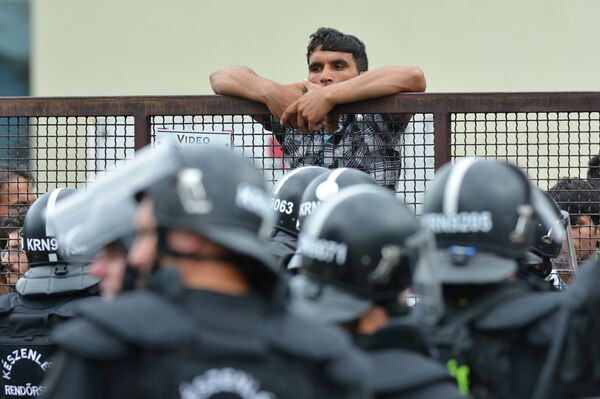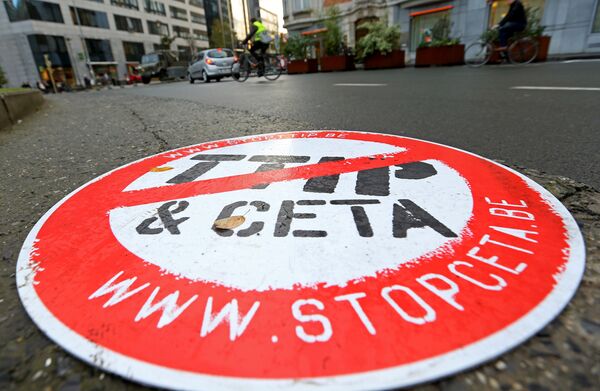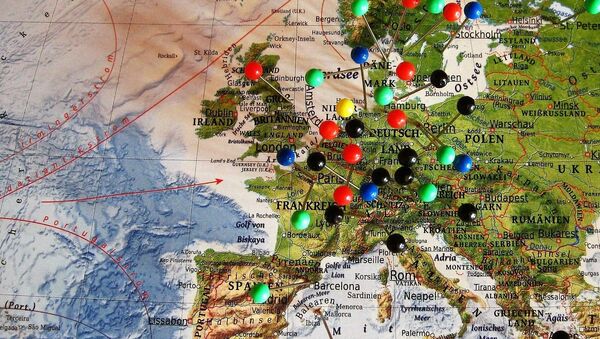Philippe Bernard, the London-based correspondent for Le Monde, the French newspaper, said: "London will do everything to exploit the divisions that may arise between the Twenty-Seven", referring to the remaining members of the EU post-Brexit.
Meanwhile, in Germany, Die Zeit newspaper warned: "The weakness of the EU is evident. It is equally clear that there are forces within and outside the union who want to use that for themselves. Russian President Vladimir Putin is part of it, Marine Le Pen belongs to it and — as we have known for a few days — even US President-elect Donald Trump belongs to it.
I look very much forward to meeting Prime Minister Theresa May in Washington in the Spring. Britain, a longtime U.S. ally, is very special!
— Donald J. Trump (@realDonaldTrump) 8 January 2017
"He congratulated the British on Brexit and offered them a free trade contract as soon as possible. Since then, not a few have been thinking in Brussels that Trump wants to destroy the EU. The dynamics of the Brexit have changed completely since Trumps utterance. It has become important," said Die Zeit.
The divisions within the EU have been emerging over time and — whatever the timescale of Brexit that is supposed to be two years after Article 50 is invoked, which could be in March 2017 — those divisions are likely to have implications not just for the United Kingdom, but for all Europe as well.
Mass Immigration
One of the central four freedoms of the EU is the movement of people, which has been as the root of the most serious rifts in recent EU history. The flood of migrants crossing the Mediterranean or Aegean seas and through the West Balkan route caught the EU off guard.
Firstly, it exposed the deep flaw in the Schengen borderless Europe concept: that its external borders were not secure and the people — including terrorists — had been free to move where and when they wanted in and out of Europe unchecked.

It also exposed to failure of the Dublin regulation — that all asylum seekers should be processed in the country of first arrival. They weren't. Tens of thousands drifted throughout Europe without being registered or assessed to see if they were eligible for asylum.
Two attempts to resolve the issue have run into major difficulties. The first — a plan to relocate 160,000 migrants across Schengen according to a quota system — has hit serious opposition, including legal action by Hungary — supported by Romania, the Czech Republic, Slovakia and Poland — against the EU.
The Second — the EU-Turkey deal to relocate "irregular migrants" refused asylum in Greece back to Turkey — has run out of steam over its coupling with Turkey's accession into the EU. Already facing difficulties meeting accession criteria, the crackdown on opposition and media following the failed coup, July 2016, has led to major opposition to the migrant deal within Europe.
#Refugees w #disabilities face challenges getting shelter, sanitation, #mentalhealth care in #Greece https://t.co/ateB9IAhLm pic.twitter.com/ZChTYWEyRy
— Judith Sunderland (@sunderland_jude) 18 January 2017
The Eurozone is in spasm over attempt to keep it on the rails as a credible currency, with Spain and Portugal among countries struggling to stay within its fiscal rules and Greece floundering to meet the terms of its latest bailout deal. The Eurozone crisis has led to calls — notably by French President Francois Hollande — for the creation of a Eurozone government that would unite the countries using the single currency. A Europe within Europe.
With Donald Trump calling NATO "obsolete" accusing Europe of not paying its way within the coalition and now coming out in favor of Brexit — offering the UK quick access to a new US-UK trade agreement — Europe is also facing a transatlantic rift amid calls for a pan-EU defense force.

The controversial Transatlantic Trade and Investment Partnership has taken years to negotiate between the EU and the US, but has still failed to reach approval, as its Canadian counterpart CETA remains unfinished business. Many are suggesting Britain's path to negotiating its own trade deals outside Europe may be the right direction.
As UK Prime Minister Theresa May prepares to press the Brexit button, many in Europe are asking what sort of EU Britain is leaving and what — in two years' time — it will be negotiating to have a new relationship with.


